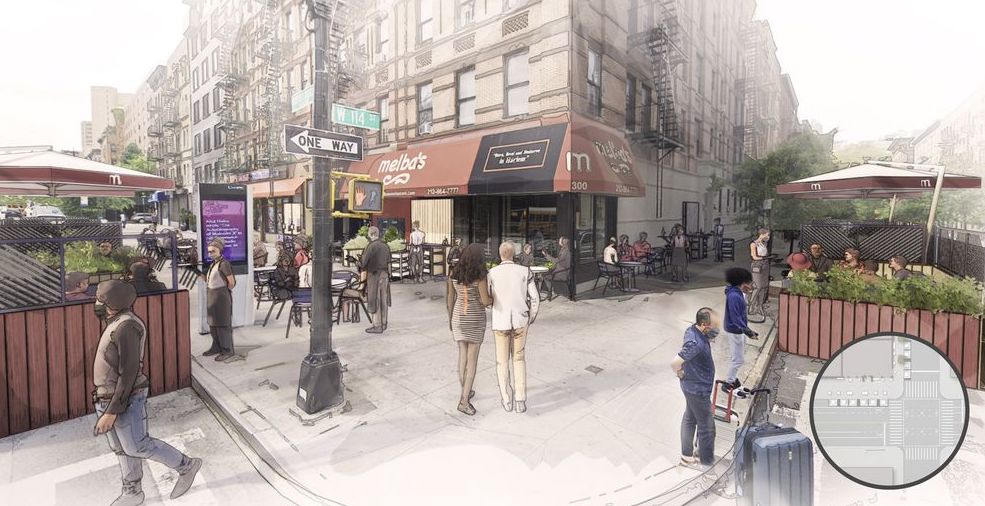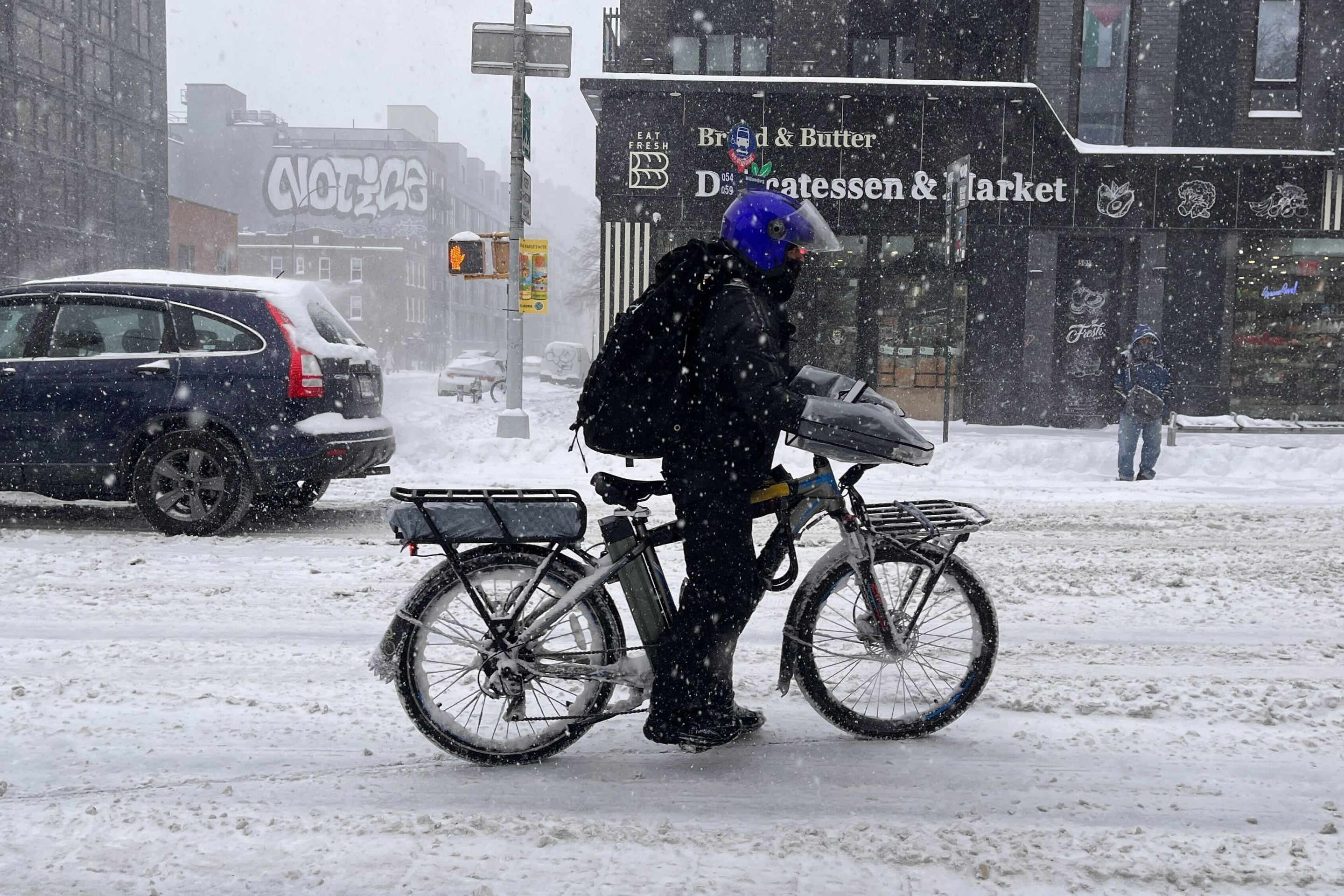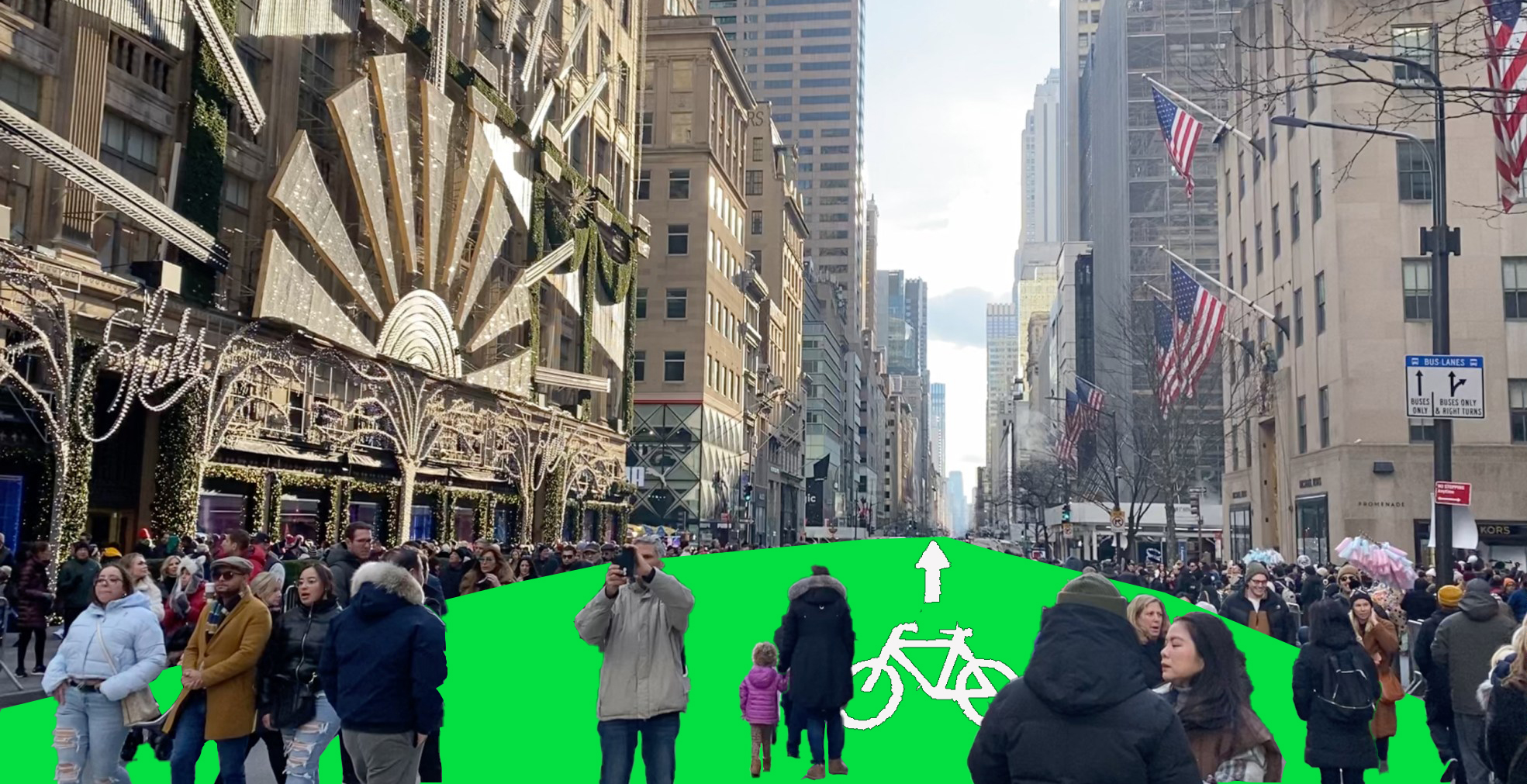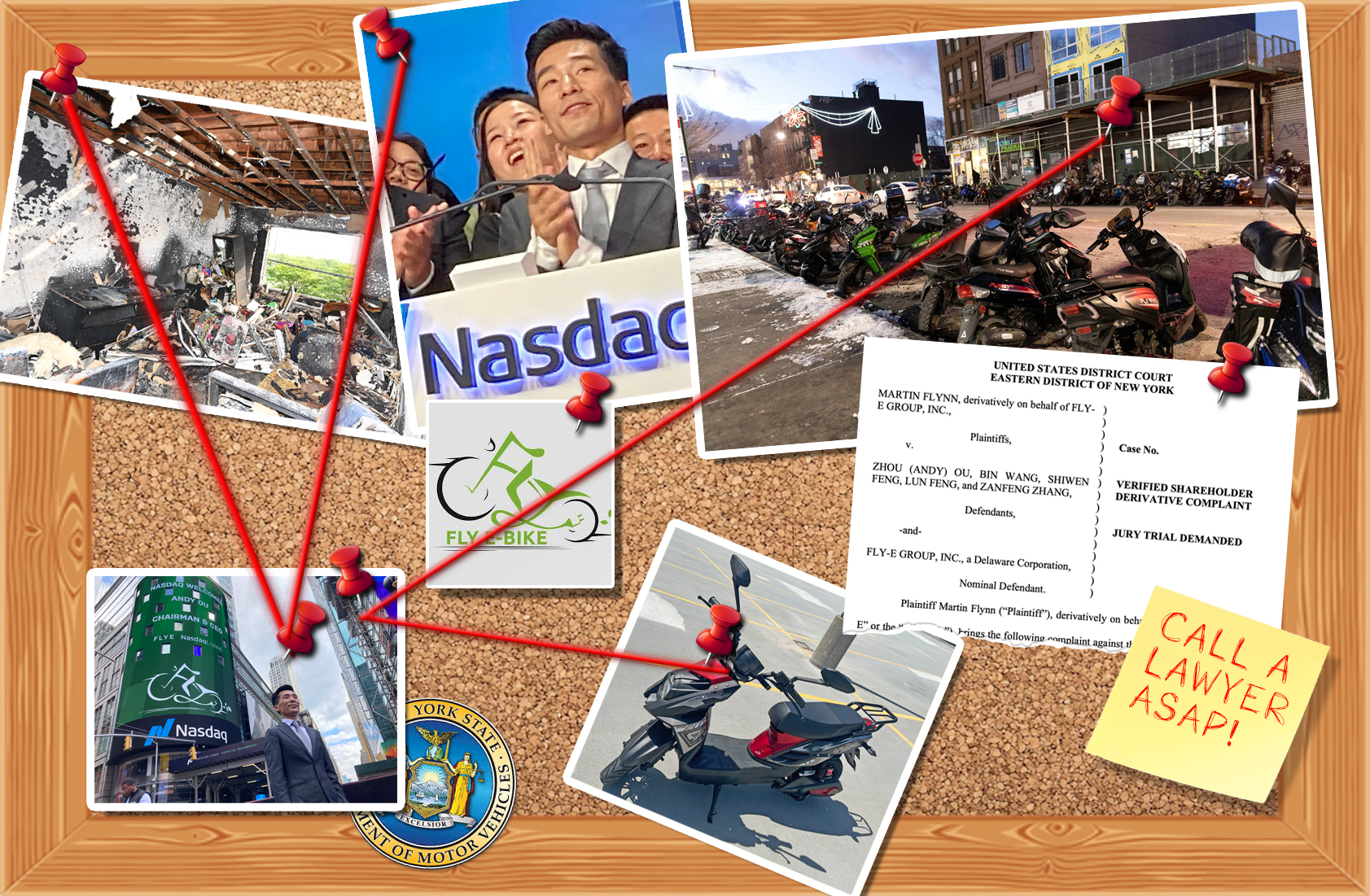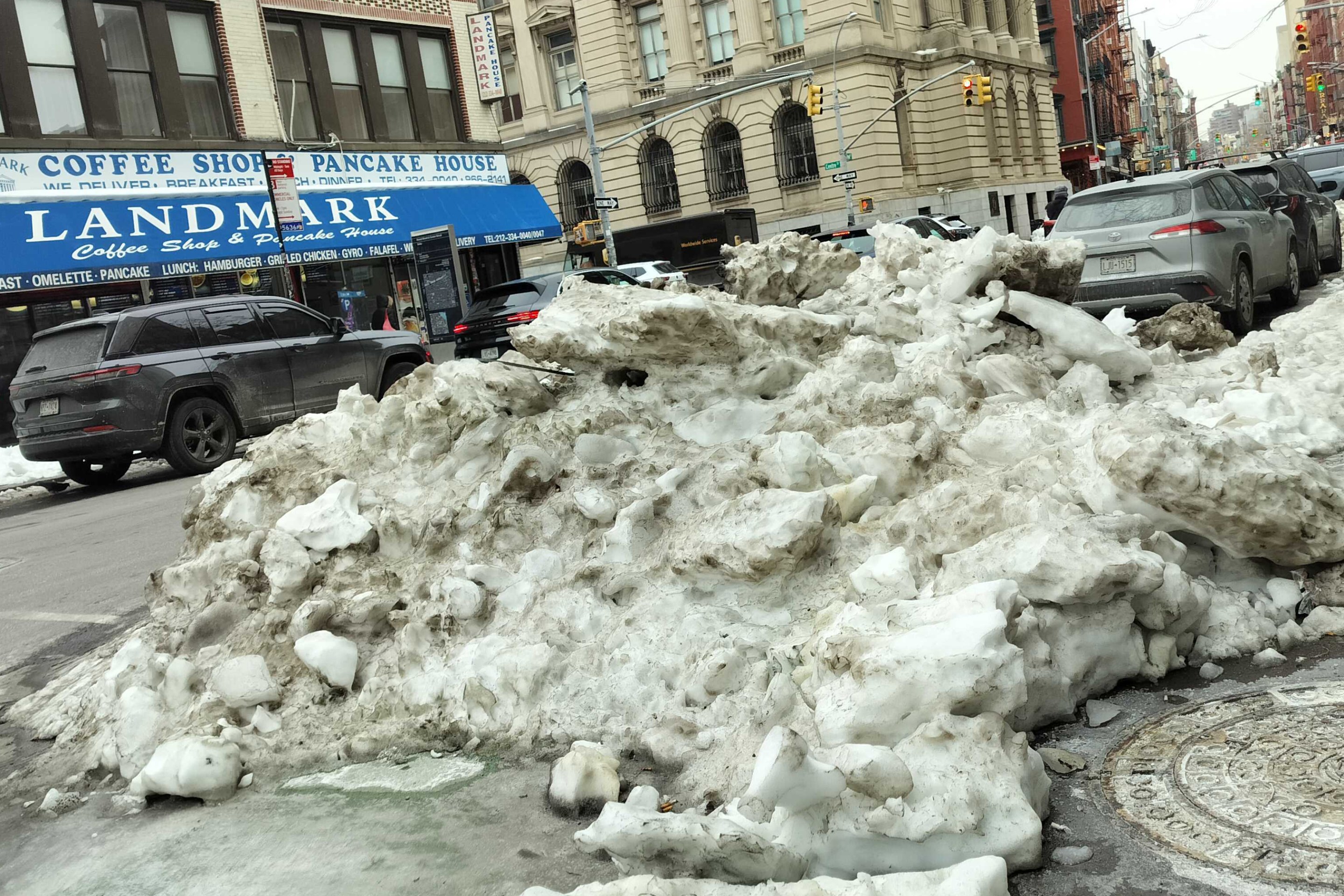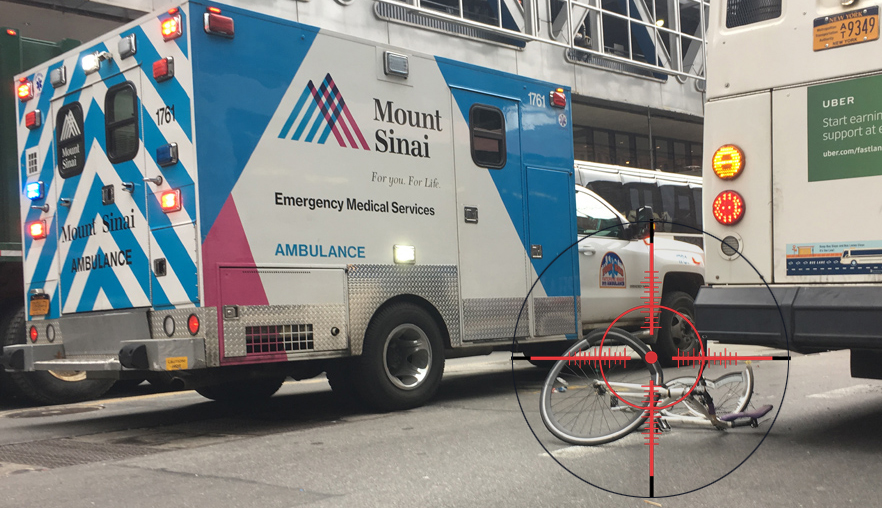The mayor is un-phased on open streets for restaurants.
Mayor de Blasio said on Wednesday that he will not yet allow eateries and bars to operate in the city's thousands of miles of open space — our public roadways — even as the weather improves and other cities around the country are already creating economically viable, and socially responsible, ways for restaurants to reopen and employ millions.
"There is a lot of excitement [in the restaurant industry] about this possibility, but it's not in Phase I," the mayor said in response to a question from the Wall Street Journal's Katie Honan this morning, referring to the construction, manufacturing, wholesale and parts of the retail industries that are set to reopen in the first or second week of June.
That "Phase I" leaves bars and restaurants out of luck until at least deep into June at the earliest, which will be weeks after other cities have created open space (see urban planner Mike Lydon's Google doc for what other places are doing).
"I really respect the wonderful work that's been done in California and in San Francisco specifically," the mayor said, referring to Baghdad by the Bay's just-announced plan. "We look at people's approaches all over the world, but we know our circumstances are particular and we are very much in a safety first, health first approach."
The mayor's reluctance to lead follows a longstanding pattern. The mayor was slow to follow the lead of cities such as Oakland and Minneapolis, which were creating open streets earlier in the pandemic with very little municipal labor — in fact, the mayor mocked those cities' efforts as not applicable to New York's unique circumstances.
Then, after several weeks of quiet deliberation and constant questioning from Streetsblog and other outlets, the mayor did indeed roll out a plan for 100 miles of open streets, very similar to Oakland and Minneapolis.
Once again, that dynamic is playing out: Cities such as San Francisco, Cincinnati (back in mid-May!), Vilnius (in April!) and others are simply converting streets or curbside spaces immediately — while the weather is good — for restaurants to get back in business and employ millions of people.
But to Mayor de Blasio, this deliberate approach is a feature of his leadership, not a bug. After Honan's question, Streetsblog asked the mayor why he constantly declares that New York has "unique circumstances" only to come around weeks later and carry out exactly what other cities pioneered. What is different with the restaurants, we asked, especially with the weather improving and restaurants have basically through September to make some money and put people back to work?
The mayor's answer is telling:
I take it as a badge of honor, honestly, that we look at what other people do often honestly in circumstances that are more propitious. Face it, we have been the epicenter of the crisis here in this country. We have the toughest conditions, the most densely populated place that's been in the middle of this fight. ... And job one is safety and health, and not allowing that boomerang [of cases]. So I actually feel it is exactly right to say we're watching what other people do in easier circumstances and we decide what makes sense for us.
The open streets is a great example. I did not think it made sense when we didn't have enough NYPD officers and other city personnel. Now that they're back, that really contributed — plus great work with the city council, great work with communities. So when we started it, we were able to do it safely and the proof is in the pudding. It's a great idea that is working really well, and has been executed safely. So I think the parallel with the bars and restaurants is very, very clear. I would love them back up and running immediately, but the safety ramifications of bars and restaurants are very different from the Phase I industries. ... Bars and restaurants implicitly come with much closer contact. We have to figure out how to do it right, how to enforce it, how to make it viable. So I know people want to get going. I respect it. Soon as we feel it's right, we'll be ready to act.
Restaurant industry leaders were appalled by — and impatient about — the mayor's answer.
"The mayor’s response is poorly timed and insufficient," said Henry Rinehart, who is leading dozens of restaurateurs who are demanding open streets for serving customers. "Open streets with thoughtful, interagency, city-wide planning for open air dining must be in Phase I, as a compelling public health mandate. This must happen in weeks, not months, as the economic health of our city hangs in the balance.
"I implore the mayor — do not leave June restaurant revenue lying in our streets," Rinehart concluded.
That revenue amounts to hundreds of millions of dollars for workers, which would also mean revenue for the city in terms of taxes.
Shabazz Stuart, the CEO of Oonee, the bike parking company who is also assisting the restaurant industry effort, called on the mayor to "take a more aggressive approach that is more in line with the leadership position that New York still enjoys on the world stage."
Stuart also sought to dispel a myth that open streets for restaurants would only benefit well-to-do neighborhoods.
"Block parties are just as popular in Bed-Stuy as the Upper West Side," he said. "There is no reason to think that open streets wouldn't provide a crucial lifeline to businesses in all parts of the city, regardless of race, class or creed. Letting community-based organizations and local businesses request open streets could be an effective way to mitigate this concern."
The New York City Hospitality Alliance, which represents scores of restaurants and bars, is also behind the effort. The group posted a "call to action"/petition on its website well before Memorial Day ... which has come and gone.
"NYC will not fully recover unless the restaurant industry is at the core of our city’s social and economic recovery," the statement says.
